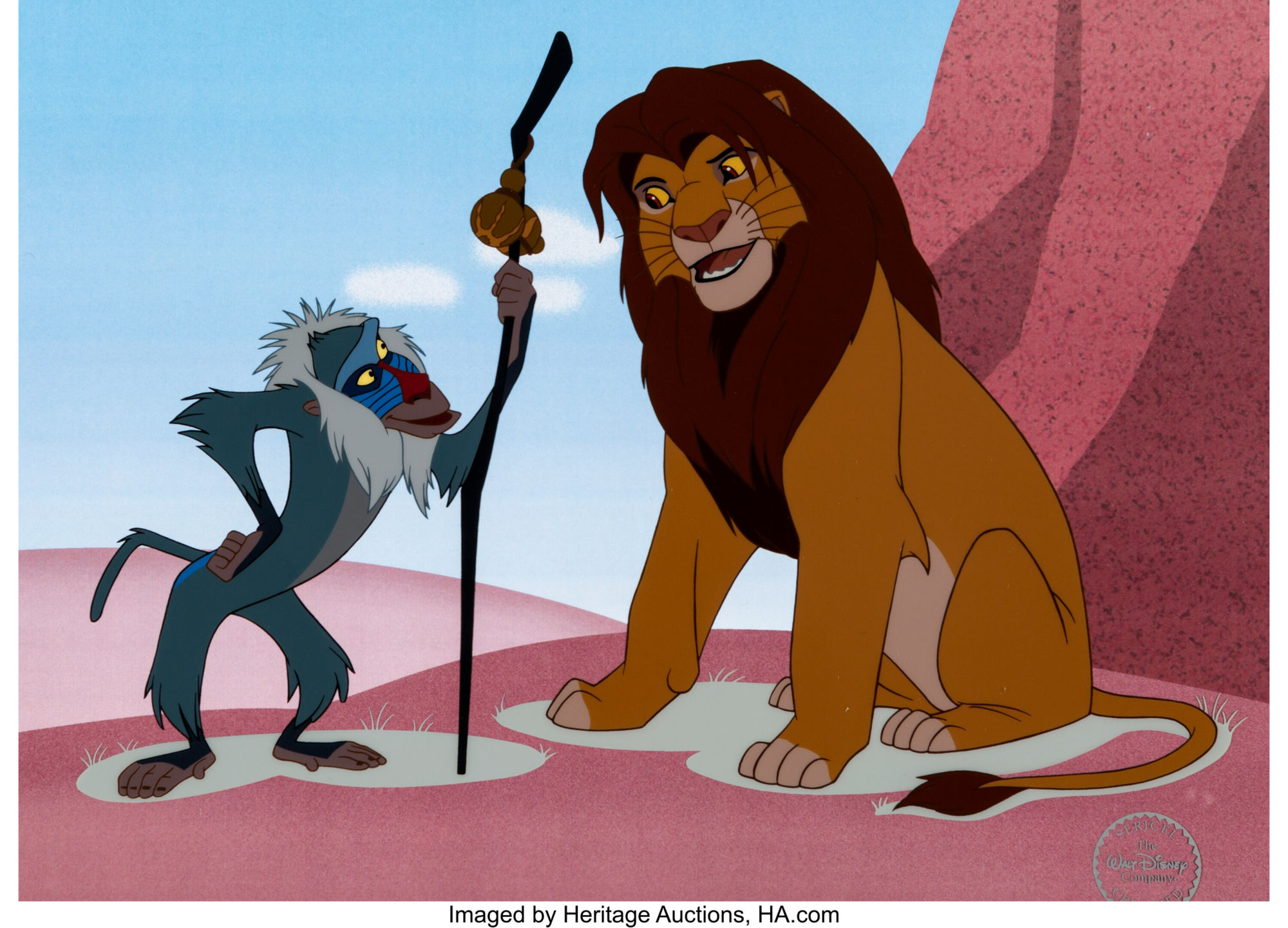Let’s be real for a second—when someone asks you “what is Rafiki?” your mind might immediately jump to that iconic monkey from The Lion King who smacks Simba on the head with a stick. But guess what? Rafiki is way more than just a cartoon character. It’s a word, a concept, and even a cultural symbol that carries deep meaning. So buckle up because we’re diving deep into the world of Rafiki, and by the end of this, you’ll know more than just his catchphrase “Asante sana.”
Rafiki isn’t just a name; it’s a reflection of wisdom, friendship, and guidance. In Swahili, Rafiki means "friend," but it goes beyond the literal translation. It represents the bond between people, the importance of mentorship, and the idea of being there for someone through thick and thin. Whether you’re talking about the character or the word itself, Rafiki has a lot to teach us about life, relationships, and even ourselves.
Now, before we dive deeper into the nitty-gritty of what Rafiki truly means, let me ask you something—are you ready to explore the layers of friendship, wisdom, and culture wrapped up in this one word? Because that’s exactly where we’re headed next. Stick around because things are about to get interesting.
Understanding the Meaning of Rafiki
Breaking Down the Swahili Word
First things first, let’s talk about the language behind Rafiki. Swahili, also known as Kiswahili, is an official language in several African countries like Kenya, Tanzania, and Uganda. And guess what? Rafiki comes straight from this beautiful language. When you break it down, Rafiki translates to "friend" in English, but it’s so much more than just a buddy or pal. It’s about loyalty, trust, and support.
Swahili words often carry deeper meanings, and Rafiki is no exception. Think of it as a reminder of the importance of community and connection. In many African cultures, friendship isn’t just casual—it’s a commitment. Rafiki embodies that idea perfectly.
Why Rafiki Matters Today
In today’s fast-paced world, where connections can feel superficial, the concept of Rafiki serves as a powerful reminder. True friendship isn’t about how many likes you get on social media; it’s about having someone who’s got your back no matter what. Rafiki teaches us to value authenticity and build meaningful relationships.
Let’s be honest—everyone could use a little more Rafiki in their lives. Whether it’s a shoulder to lean on during tough times or someone to celebrate your victories with, the idea of Rafiki resonates with people all over the world. And that’s why it’s still relevant today, even outside its cultural origins.
Rafiki in Popular Culture
The Lion King Connection
Ah, The Lion King. Who doesn’t love this classic Disney masterpiece? And at the heart of it all is Rafiki, the wise old baboon who acts as Simba’s mentor. But here’s the thing—Rafiki isn’t just a fun character; he’s a symbol of wisdom, tradition, and renewal. Remember when he smacks Simba on the head with that stick? That moment isn’t just random—it’s a lesson in embracing the past and moving forward.
Rafiki’s role in The Lion King is more than just comic relief. He’s the voice of reason, the keeper of traditions, and the one who guides Simba through his journey of self-discovery. Through Rafiki, Disney brought the essence of African culture and philosophy to a global audience, making him one of the most beloved characters in animation history.
Lessons We Can Learn from Rafiki
Rafiki isn’t just entertaining; he’s also incredibly wise. Here are a few life lessons we can take away from him:
- Embrace the Past: Rafiki reminds us that our past shapes who we are today. Instead of running away from it, we should learn from it and grow.
- Find Your Inner Strength: When Simba doubts himself, Rafiki encourages him to look within and discover his true potential. We all have that strength inside us—we just need to believe in it.
- Be a Mentor: Rafiki’s role as a mentor shows us the importance of guiding others and helping them find their way.
These lessons aren’t just for kids—they’re for everyone. Rafiki’s wisdom transcends age and culture, making him a timeless figure.
The Cultural Significance of Rafiki
Rafiki in African Traditions
In many African cultures, the concept of friendship is deeply rooted in community and mutual support. Rafiki represents this idea perfectly. Think about it—friends are the ones who help you through life’s ups and downs, whether it’s celebrating a wedding or mourning a loss. They’re the family you choose.
Rafiki also symbolizes the importance of passing down traditions and knowledge. In many African societies, elders act as mentors, sharing their wisdom with younger generations. This is exactly what Rafiki does in The Lion King—he guides Simba and teaches him about the Circle of Life.
How Rafiki Influences Modern Relationships
Today, the word Rafiki has spread far beyond its African roots. People all over the world use it to describe close friendships or mentorship relationships. It’s a universal concept that resonates with anyone who values loyalty and trust.
But here’s the kicker—Rafiki isn’t just about having friends; it’s about being a good friend. It’s about showing up for others, listening without judgment, and offering support when it’s needed most. In a world that often feels disconnected, the idea of Rafiki reminds us of the power of human connection.
Rafiki in Modern Times
Rafiki as a Symbol of Unity
In recent years, Rafiki has become a symbol of unity and collaboration. Whether it’s in business, education, or social activism, the idea of building strong relationships and working together is more important than ever. Rafiki reminds us that we’re stronger when we support each other.
Think about it—companies that prioritize teamwork and employee well-being tend to thrive. Schools that foster inclusive environments help students succeed. And communities that come together to address challenges make a real difference. Rafiki’s message of friendship and cooperation is relevant in every aspect of life.
Rafiki in Technology and Innovation
Believe it or not, Rafiki has even made its way into the tech world. There are apps, platforms, and organizations named after Rafiki that focus on building connections and fostering collaboration. For example, some educational platforms use the name Rafiki to emphasize the importance of mentorship and peer support in learning.
This shows how the concept of Rafiki continues to evolve and adapt to modern times. It’s not just a word—it’s a philosophy that inspires innovation and positive change.
Rafiki and Mental Health
The Role of Friendship in Mental Well-being
Let’s talk about something important—mental health. Studies have shown that having strong social connections can significantly improve our mental well-being. And who better to represent this than Rafiki? His unwavering support for Simba is a perfect example of how friendship can help us through tough times.
Whether it’s a listening ear, a kind word, or simply being present, friends play a crucial role in our mental health. Rafiki reminds us to reach out to others when we’re struggling and to be there for those who need us.
Rafiki as a Source of Strength
Rafiki’s wisdom extends beyond friendship—he’s also a source of strength. When Simba feels lost and unsure of himself, Rafiki encourages him to believe in his abilities and take action. This is a powerful lesson for anyone dealing with self-doubt or anxiety.
By embracing the Rafiki mindset, we can learn to support ourselves and others in overcoming challenges. It’s all about finding that inner strength and using it to create positive change.
Rafiki Around the World
Rafiki in Global Contexts
Although Rafiki originates from Swahili, its meaning resonates with people all over the world. In many cultures, the idea of friendship and mentorship is universal. Whether you’re in Asia, Europe, or the Americas, the concept of having someone you can rely on is essential.
Rafiki’s popularity in global media, especially through The Lion King, has introduced millions of people to this beautiful word and its deeper meaning. It’s a testament to the power of cultural exchange and the universal appeal of friendship.
Rafiki in Language and Translation
One interesting aspect of Rafiki is how it translates across languages. While the word itself may not exist in every language, the concept of friendship and support is universal. In Spanish, for example, you might say "amigo," in French "ami," and in Japanese "tomodachi." Each language has its own way of expressing the idea of Rafiki, but the essence remains the same.
This shows how language can bridge cultural gaps and bring people together. Rafiki is a great example of how a single word can carry so much meaning and inspire connection across borders.
Conclusion: Embrace Your Inner Rafiki
As we wrap up our journey into the world of Rafiki, let’s take a moment to reflect on what we’ve learned. Rafiki isn’t just a word or a character—it’s a philosophy that encourages us to embrace friendship, wisdom, and collaboration. Whether it’s through our personal relationships, professional endeavors, or community involvement, the idea of Rafiki can guide us toward a more connected and fulfilling life.
So here’s my challenge to you—be a Rafiki in someone’s life. Show up for your friends, offer support when it’s needed, and never underestimate the power of a kind word or gesture. Together, we can create a world where everyone feels valued and supported.
And don’t forget to share this article with your own Rafiki! Who knows—you might inspire someone else to embrace the power of friendship too. Until next time, stay wise, stay connected, and remember—“Hakuna Matata!”
Table of Contents
- Understanding the Meaning of Rafiki
- Rafiki in Popular Culture
- The Cultural Significance of Rafiki
- Rafiki in Modern Times
- Rafiki and Mental Health
- Rafiki Around the World
Subheadings


